ALL ARTICLES CAN BE READ IN MORE THAN 100 LANGUAGES
Harvard University’s president Alan Michael Garber har meddelt at hans universitet ikke ville etterkomme Trump-regjeringens pålegg. President Trump forsøker derfor nå å rive ned universitetets renommé, hvilket rangeres som ett av verdens beste.
Utdannelse til afroamerikanere
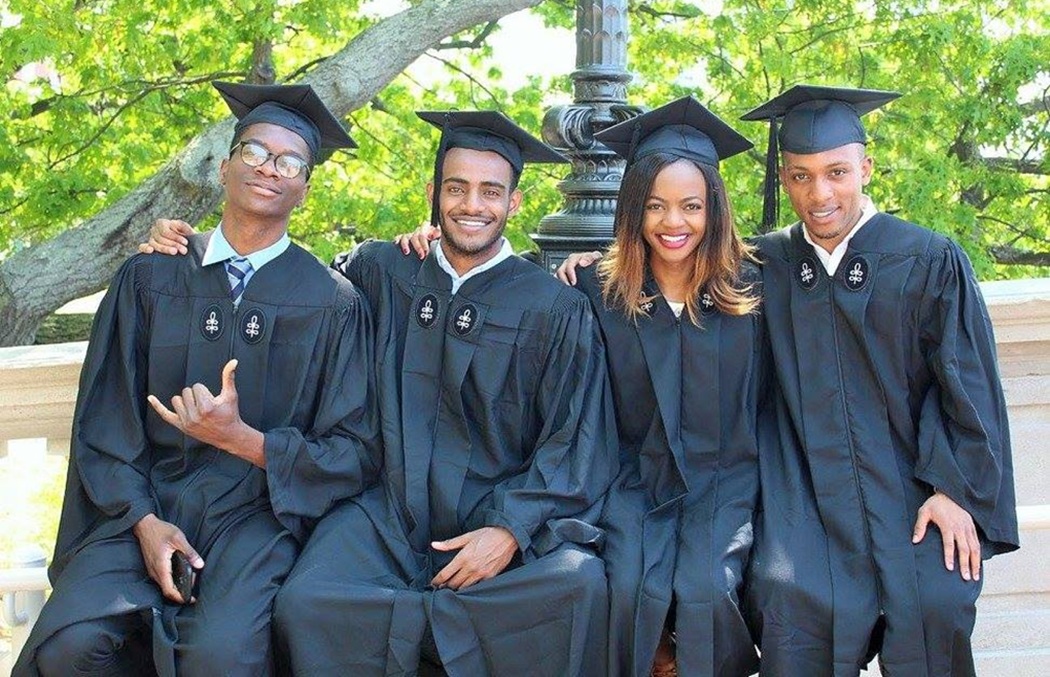
Fargede amerikanere med masterlue
Harvard University ble grunnlagt i 1867 som vi kjenner dette i dag, rett etter borgerkrigen, hvilket påvirket mange forhold i USA. Universitetet ble dypt påvirket av krigens sosiale og politiske omveltninger og utdannet mange av de unge menn som hadde kjempet i konflikten, til gode samfunnsborgere.
Det viktigste var at Harvard University ga høyere utdanningsmuligheter for afroamerikanere, som på den tiden stort sett ble nektet studieplasser ved mange av De forente staters utdanningsinstitusjoner.
Studenter fra hele verden

Studenter fra ulike etniske grupper
Universitetet fikk imidlertid raskt et rykte om fortreffelighet og tiltrakk seg følgelig studenter fra hele nasjonen og etter hver rundt fra hele verden.
I de første årene sto universitetet overfor en rekke utfordringer, inkludert økonomiske vanskeligheter og samfunnsmessig motstand. Likevel holdt det ut og fortsatte å vokse. På begynnelsen av 1900-tallet hadde Harvard University utvidet sitt pensum og bygg-fasiliteter. Det har markert seg som en av nasjonenes ledende utdanningsinstitusjon for afroamerikanere.
I dag har Harvard University en mangfoldig studentmasse og tilbyr et bredt spekter av bachelor-, graduate- og profesjonelle programmer, herunder også doktorgradstudier.
Universitetet har vokst betydelig når det gjelder student-registrering, med et nåværende antall som eksempelvis våren 2024 med 12.941 studenter.
Harvard University, er fortsatt forpliktet til sitt oppdrag om å tilby en utdanning i verdensklasse, for å fremme et inkluderende og støttende akademisk miljø.
Avgjørende valg
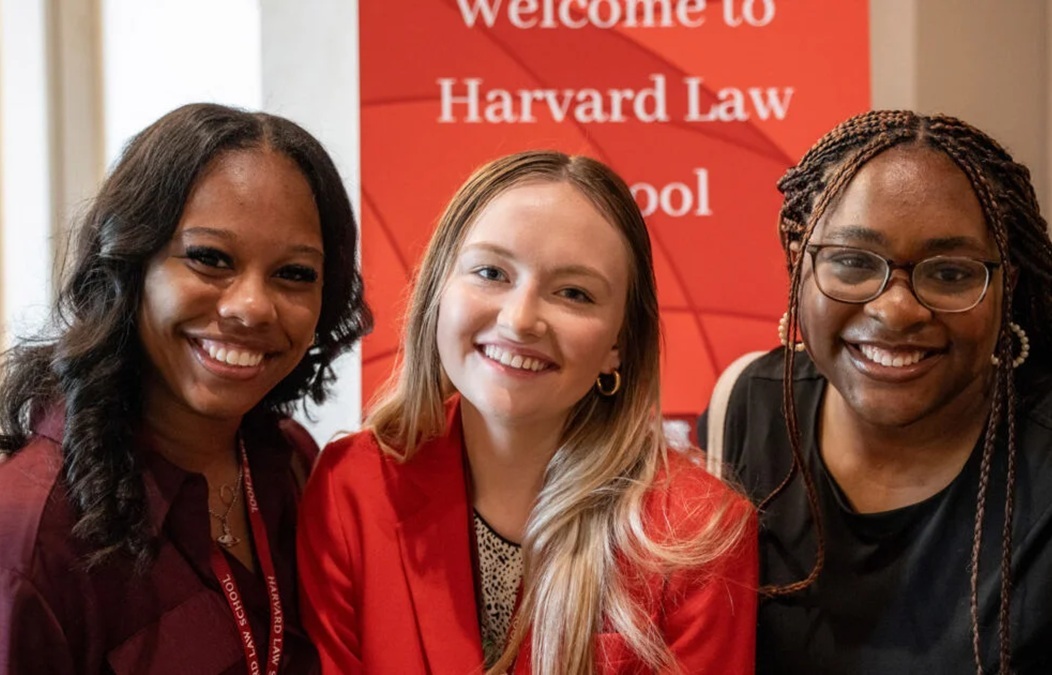
Framtidige studenter
I disse vårdager vil millioner av studenter ta en av de viktigste avgjørelsene i livet ved å velge hvilken studieretning de skal påbegynne til høsten. Med hensyn til internasjonale studenter som håper å studere i USA, kan det imidlertid vise seg å bli et skjebnesvangert forhold. Dette ettersom Trump-administrasjonen tilbakekaller hundrevis av studentvisa og formaner læreanstaltene til mer selektivt opptak. Trump ønsker altså ingen opprørere i studiemassen. Demonstrasjoner mot hans styre og beroende amerikansk politikk vil bli totalt bannlyst og gir studenter som bryter disse regler sikker, øyeblikkelig vei til flyplassen for utsendelse til opphavslandet dersom det i tillegg ikke også fører til fengsling.
Trekker finansiering
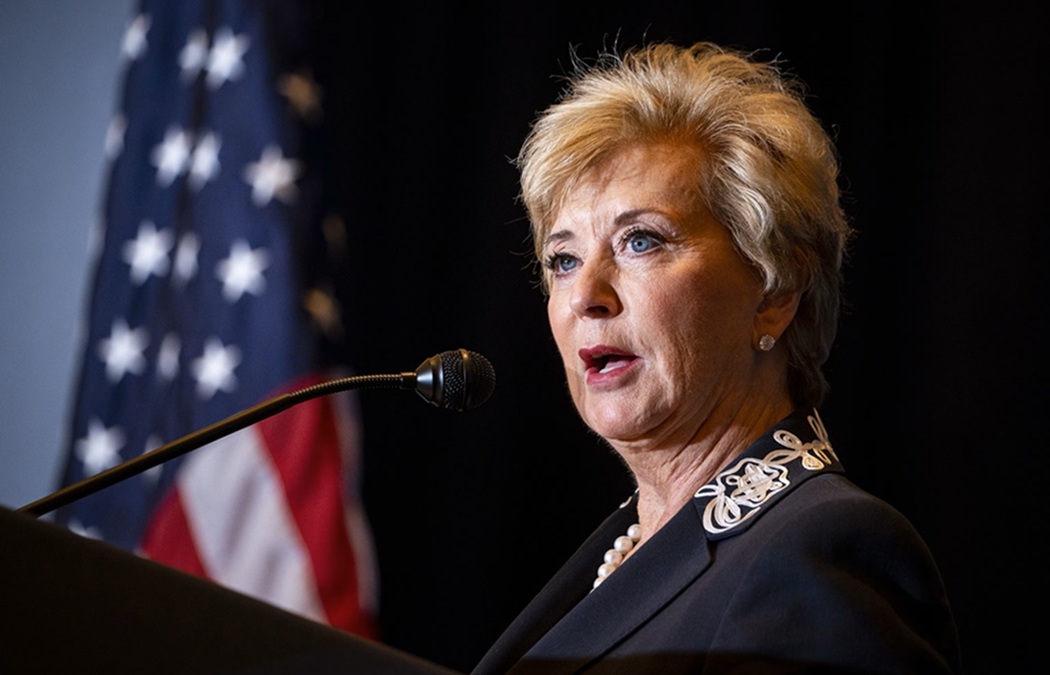
USAs utdanningsminister Linda McMahon
Administrasjonen trues dessuten med at myndighetene vil trekke milliarder av dollar til finansiering av studieinstitusjoner som ikke følger de politiske krav Trump-administrasjonen stiller. Dette slik at disse institusjonene minster evnen til å være vertskap for utenlandske studenter.
Ifølge en rapport fra det nonprofit Institute of International Education, var det eksempelvis i forrige studieår registrert et rekordhøyt antall internasjonale studenter. Mer enn 1,1 millioner studenter var registrert ved høyere, amerikanske utdanningsinstitusjoner. Disse utenlandske studenter vil gjerne måtte betale fulle gebyr for sine studier, sammenlignet med sine amerikanske medstudenter. Utenlandsstudenten bidrar følgelig med betydelig finansiering til studiestedene, hvilke kan være totalt avhengige av å ha disse studentene blant sin studentmasse.
Stor fysisk institusjon
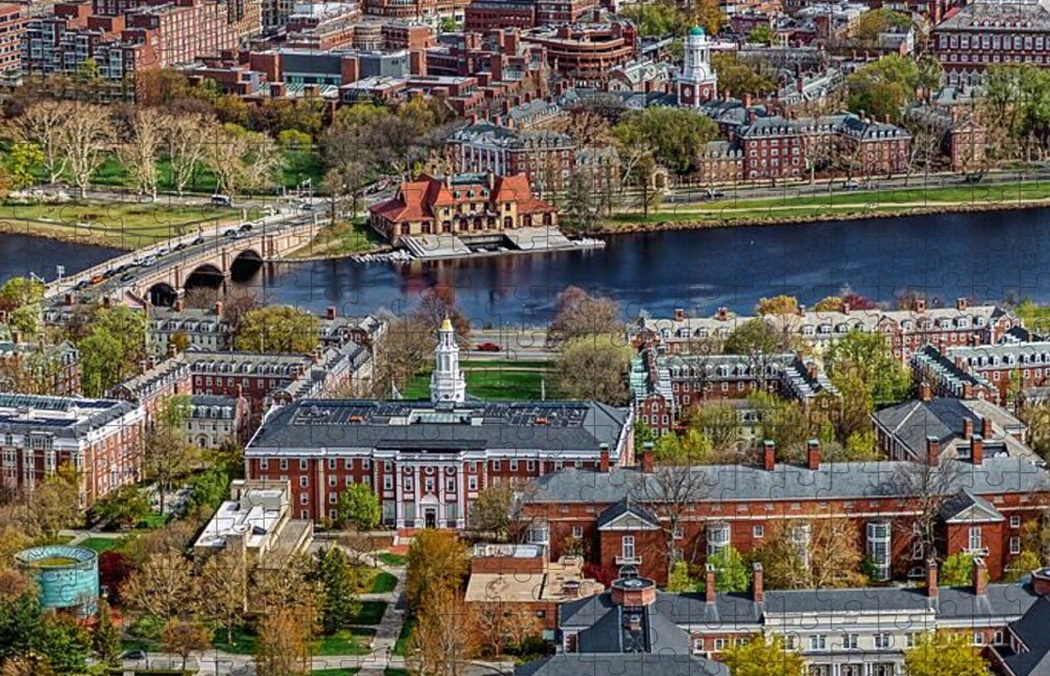
Fra Harvard University campus
Harvard University campus som måler hele 1.2 kvadratkilometer, ligger i Cambridge, Massachusetts, USA. Denne er en privat uavhengig utdanningsinstitusjon.
Onsdag i forrige uke truet president Trump å fjerne dette universitetets skattefritaksstatus og milliarder av dollar i føderal finansiering, etter at institusjonen meddelte å tilsidesette Trump-administrasjonens krav om å endre institusjonens politikk med hensyn til utenlands-studentene.
Protesterer
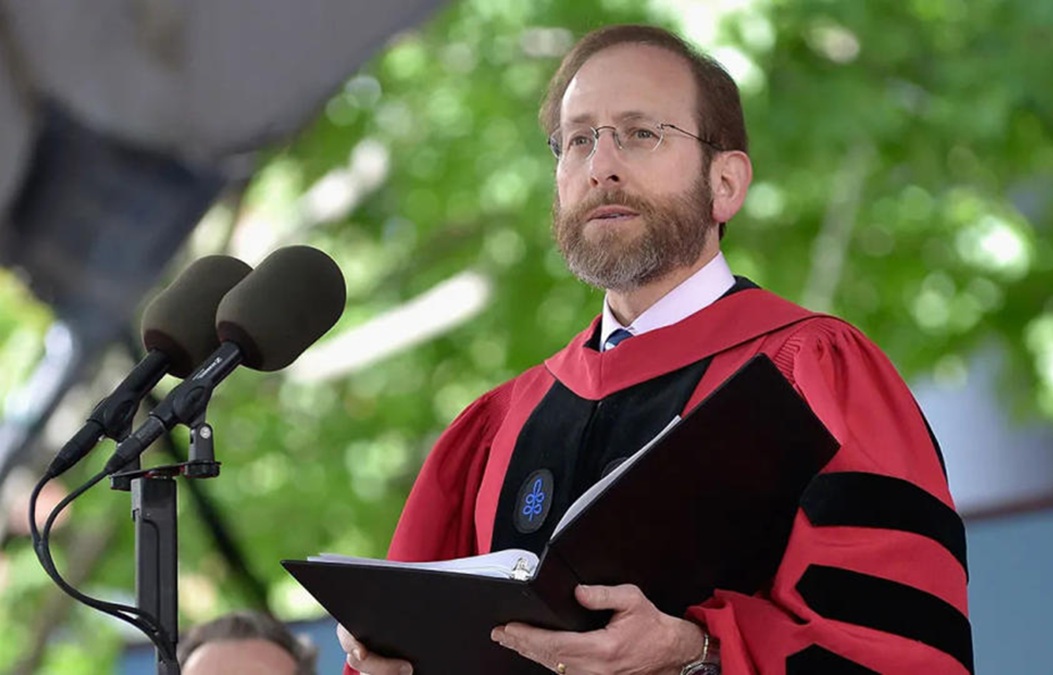
Harvards president, Alan Michael Garber
Den nåværende presidenten for universitetet som har fungert siden januar 2024, er den 70 år gamle amerikanske legen og helseøkonomen Alan Michael Garber.
Mandag i forrige uke ble det publisert en artikkel i The Harvard Gazette hvor det er redegjort for universitetets stillingtagen tilknyttet president Trumps pålegg. Universitetspresident Garber hadde meddelt at hans universitet ikke ville etterkomme regjeringens pålegg.
Det velges imidlertid å publisere hele artikkelen i sin helhet – det siteres:
« Changes pushed by government ‘unmoored from the law,’ Garber says. ‘The University will not surrender its independence or relinquish its constitutional rights.’
Harvard on Monday rejected demands from the Trump administration that threaten $9 billion in research funding, arguing that the changes pushed by the government exceed its lawful authority and infringe on both the University’s independence and its constitutional rights.
“The University will not surrender its independence or relinquish its constitutional rights,” Harvard President Alan Garber wrote in a message to the community. He added: “No government — regardless of which party is in power — should dictate what private universities can teach, whom they can admit and hire, and which areas of study and inquiry they can pursue.”
Garber’s message was a response to a letter sent late Friday by the Trump administration outlining demands that Harvard would have to satisfy to maintain its funding relationship with the federal government. These demands include “audits” of academic programs and departments, along with the viewpoints of students, faculty, and staff, and changes to the University’s governance structure and hiring practices.
The $9 billion under review by the government includes $256 million in research support for Harvard plus $8.7 billion in future commitments to the University and several renowned hospitals, among them Mass General, the Dana-Farber Cancer Institute, and Boston Children’s. Late Monday, the Trump administration announced that it was moving to freeze $2.2 billion in grants and $60 million in contracts to Harvard.
The Trump administration has been critical of Harvard’s handling of student protests related to the Gaza war. It has accused the University of failing to adequately protect Jewish students on campus from antisemitic discrimination and harassment, in violation of Title VI of the Civil Rights Act of 1964.
Garber emphasized that Harvard remains committed to fighting antisemitism, including through a series of campus measures implemented over the past 15 months. In addition, he said, the University has complied with the Supreme Court decision that ended race-conscious admissions and has worked to broaden intellectual and viewpoint diversity at Harvard.
The University’s objectives in fighting antisemitism will “not be achieved by assertions of power, unmoored from the law to control teaching and learning at Harvard and to dictate how we operate,” Garber said. “The work of addressing our shortcomings, fulfilling our commitments, and embodying our values is ours to define and undertake as a community.”
Harvard is just one of dozens of schools targeted by the Trump administration in recent weeks. Last month, the Department of Education sent letters to sixty universities, including Columbia, Northwestern, the University of Michigan, and Tufts, threatening enforcement actions for noncompliance with anti-discrimination provisions in the Civil Rights Act of 1964. The administration has taken the additional step of freezing research funding at several institutions.
Robust research and innovation partnerships among universities, the federal government, and private industry date to World War II. Government-backed research conducted at schools across the nation has led to countless discoveries, devices, treatments, and other advances that have helped shape the modern world. Computers, robotics, artificial intelligence, vaccines, and treatments for devastating diseases have all stemmed from government-financed research that crosses from labs and libraries into industry, creating new products, companies, and jobs.
In March, a report from the nonprofit United for Medical Research showed that every dollar of research funded by the National Institutes of Health — the nation’s largest funder of biomedical research — generates $2.56 in economic activity. In 2024 alone, the NIH awarded $36.9 billion in research grants, generating $94.5 billion in economic activity and supporting 408,000 jobs, according to the report.
In an interview on Monday, Daniel P. Gross, an associate professor of business administration at Duke University and co-author of a recent NBER working paper on the decades-long partnership between the U.S. government and higher ed, said the withdrawal of research funding from universities would be “catastrophic” to American innovation.
“Universities are such an integral part of the modern U.S. innovation system that it wouldn’t stand without them,” said Gross, who taught at Harvard Business School before moving to Duke.
George Q. Daley, dean of Harvard Medical School, said that biomedicine has long depended on a strong partnership with the federal government, one that has paid off for Americans in life-saving advances. Just this month, he noted, the Medical School’s Joel Habener was recognized with a Breakthrough Prize for his work on GLP-1, which has led to diabetes and anti-obesity drugs. Daley also cited transformative work in cardiovascular health, cancer immunotherapy, and a host of other conditions.
“As we look back over the 70 years of that partnership, it has returned brilliantly on the investments the government has made,” he said. “The fact that we have Harvard, MIT, and all these extraordinary hospitals, that has been a magnet for venture capital investment and now we have the pharmaceutical research infrastructure being brought into our community. All of this is a jewel in the crown of American bioscience.”
The threat to that science is an even bigger issue in an era of stepped-up competition with China, he added.
“It seems self-defeating and injurious to the economy and to U.S. leadership in biotechnology and pharmaceuticals,” Daley said. “It feels like the hammer has come down in a way that threatens something that is intrinsic to U.S. leadership and ultimately to our economic competitiveness with places like China, which are investing very, very heavily in biotechnology.”
In his message to the community, Garber stressed the contributions of university research to scientific and medical progress while underlining the importance of independent thought and scholarship.
“Freedom of thought and inquiry, along with the government’s longstanding commitment to respect and protect it, has enabled universities to contribute in vital ways to a free society and to healthier, more prosperous lives for people everywhere,” he said. “All of us share a stake in safeguarding that freedom.” » -Sitat slutt.
Featured image: Harvard University
21/04/2025


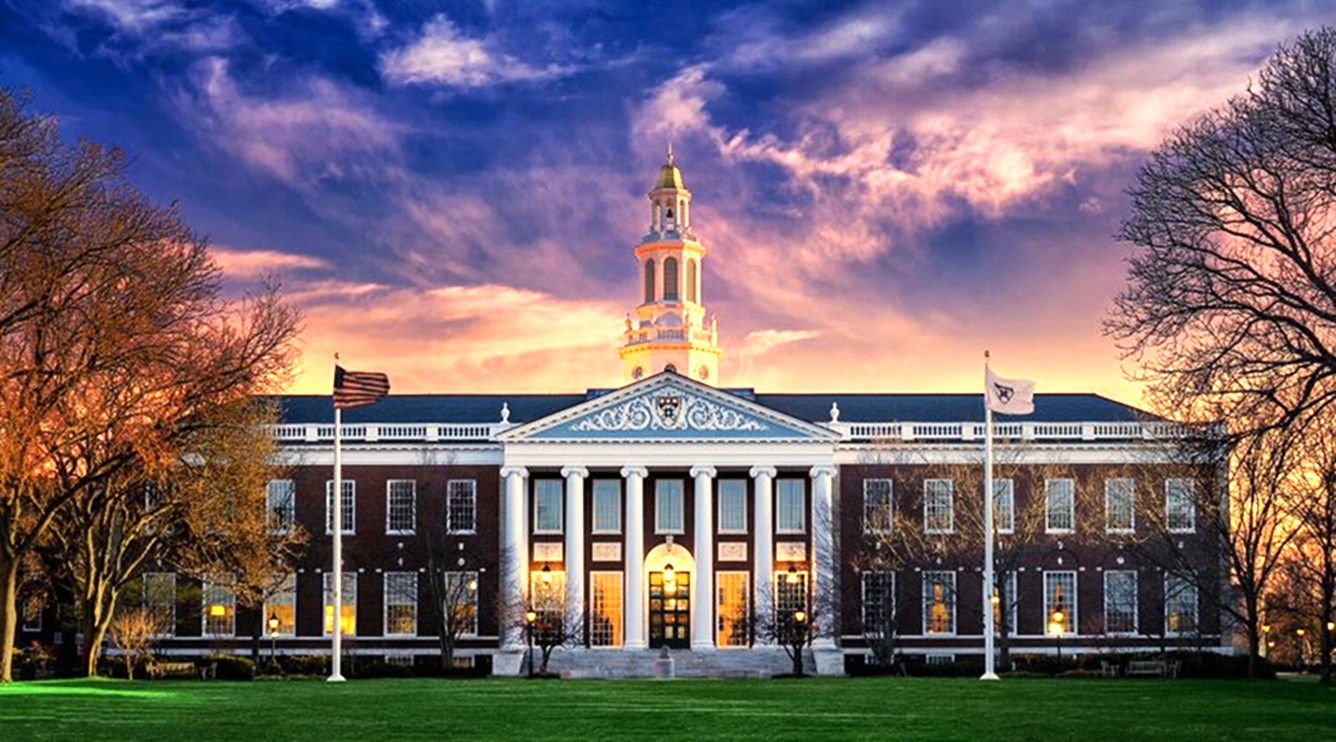

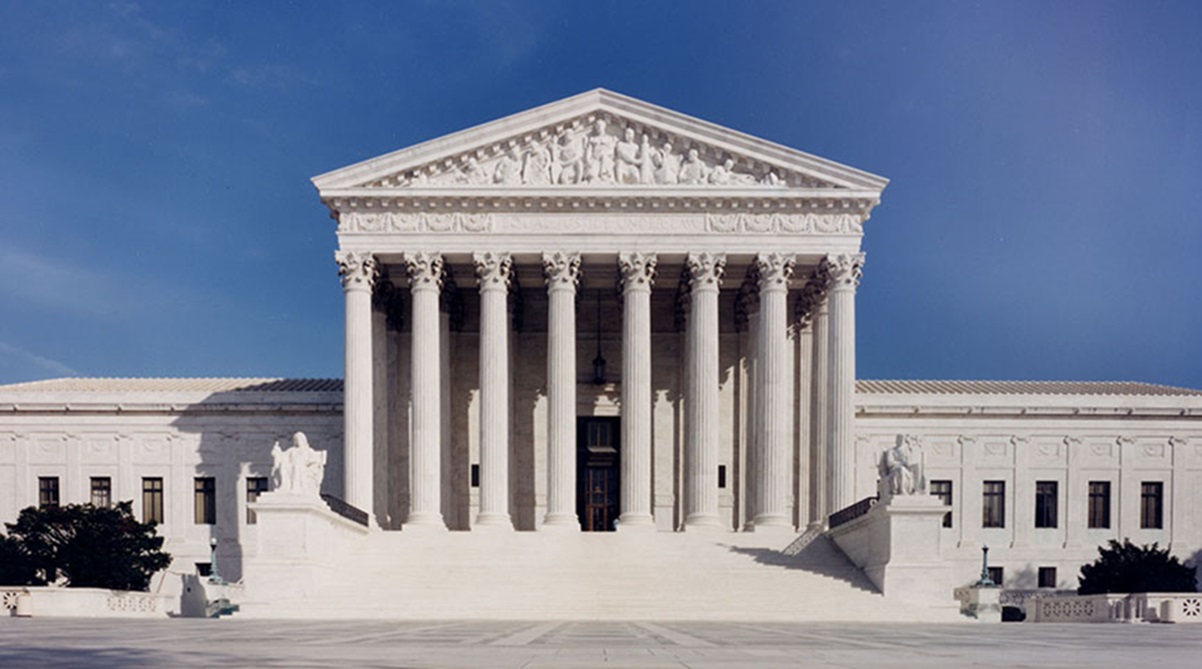










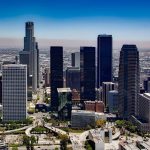


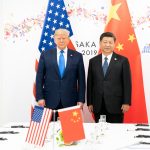





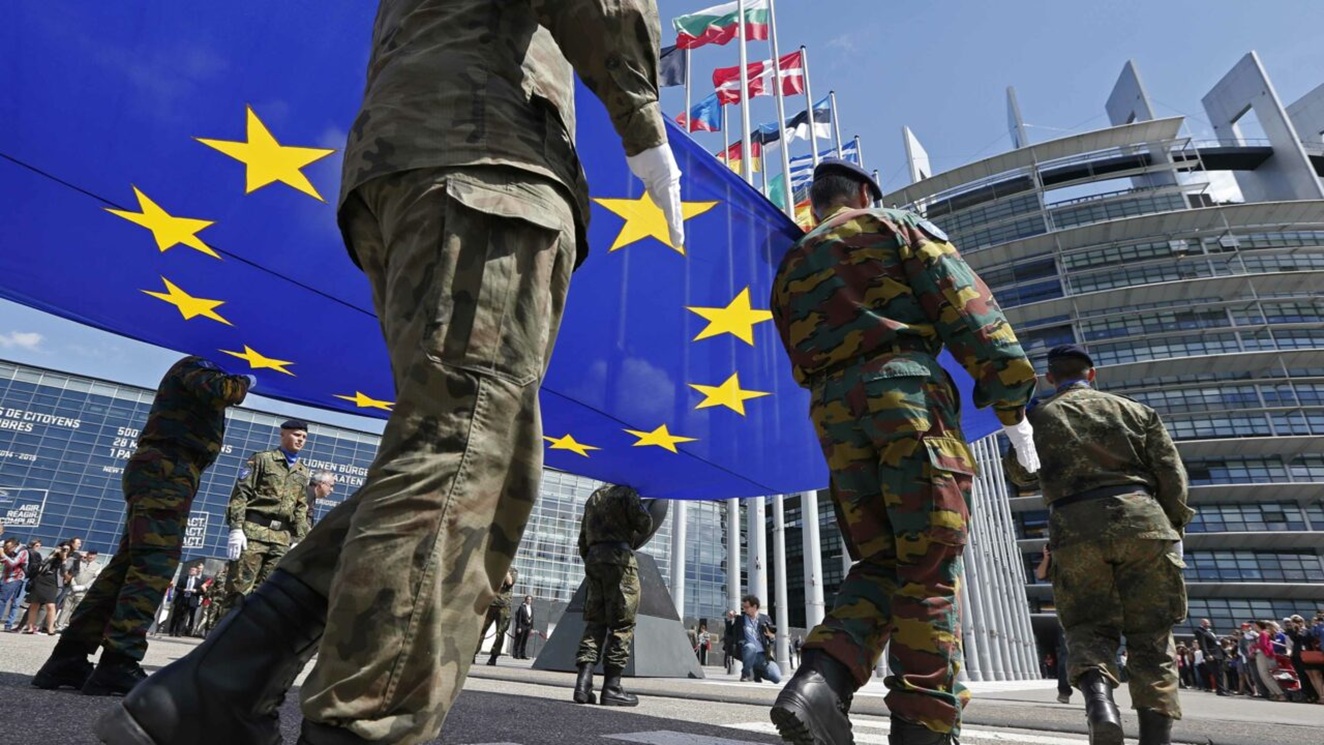

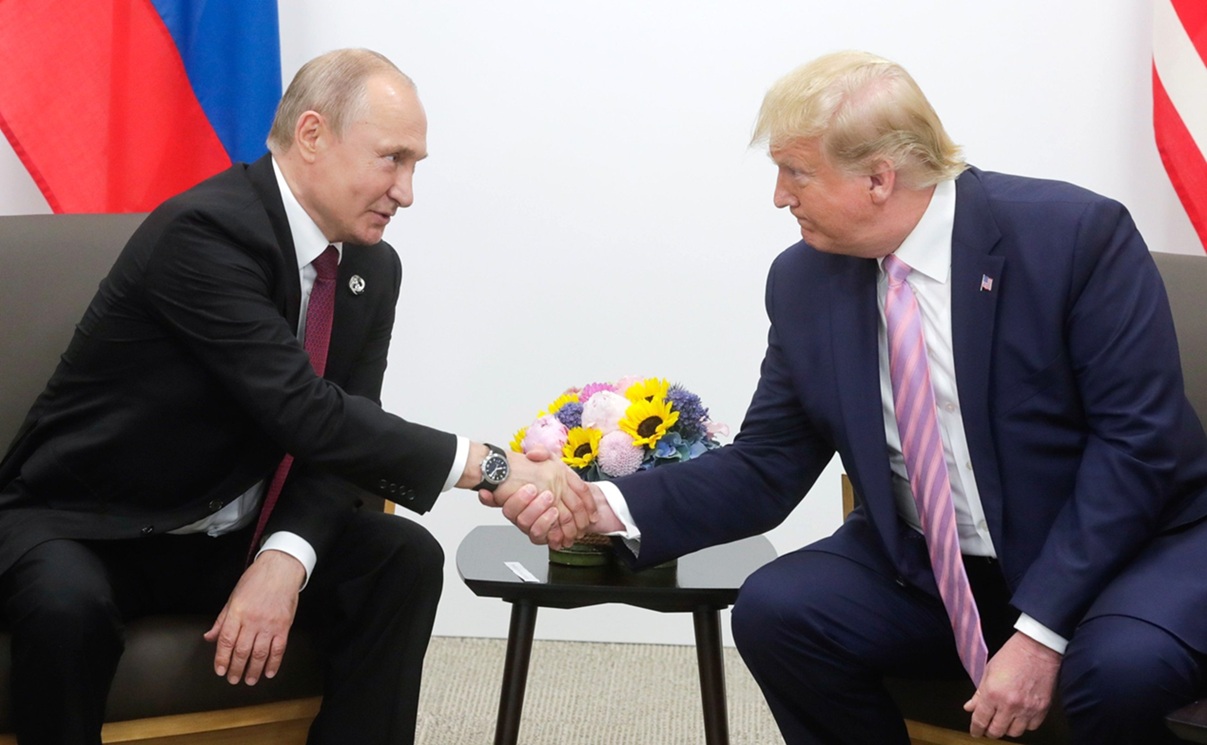
Great post! I really enjoyed reading this and learned a lot. Thanks for sharing!
This is exactly what I was looking for—thanks for the helpful tips!
Very interesting subject, thank you for putting up.